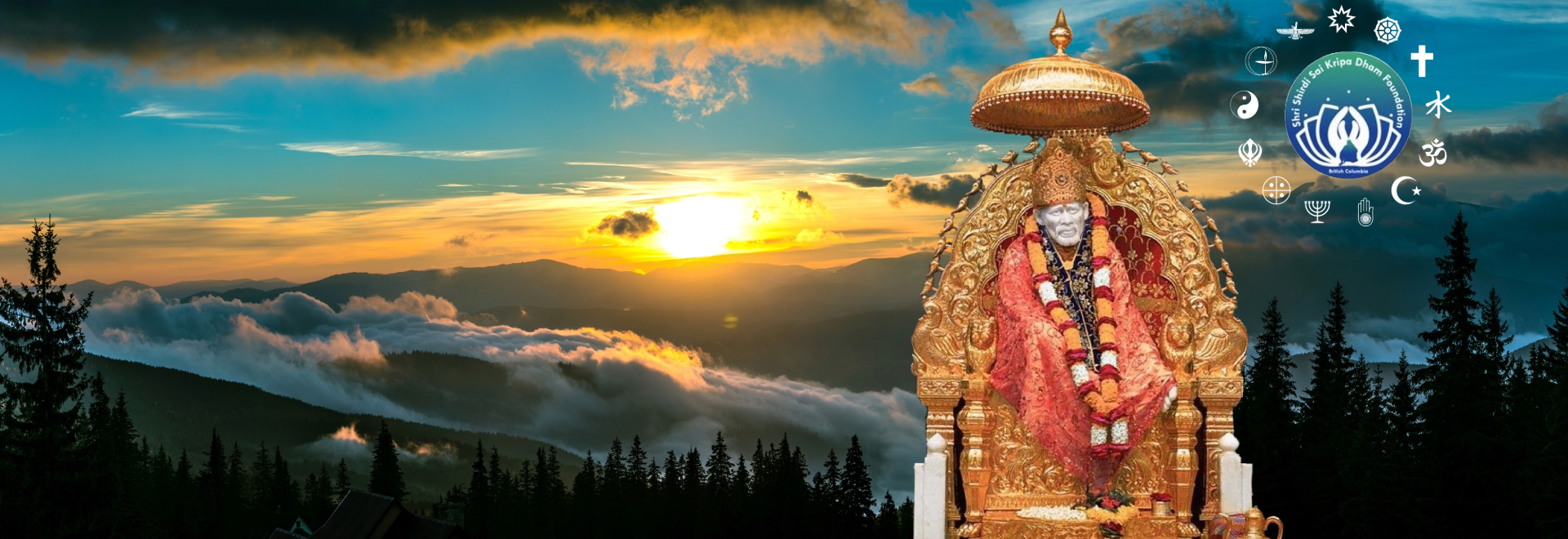Fund Raising Event 2024
Shirdi’s Spiritual Significance
Shirdi is situated on the road leading to Kopergaon, a nearby town. Interestingly, Sai Baba’s first stop upon arriving in Shirdi was a temple dedicated to Lord Khandoba, a form of Lord Shiva. This charming village is most famous for being the home of Sai Baba, a revered 19th-century Indian saint.
The temple priest, Mhalsapati, eventually became one of Sai Baba’s most devoted followers, even though he initially had doubts.
Sai Baba considered the nearby Godavari River as holy as the Ganges, a spiritual significance of the region. The area around the Godavari River has also birthed and sheltered many saints, including the renowned Jnaneshwar.
Samandi Shirdi Baba’s Temple
His resting place, known as the Samadhi Mandir, is well known all over the world and is a central landmark in Shirdi. Even if you’re just visiting for the first time, finding the Samadhi Mandir is a blessing, as it’s located within walking distance from the temple dedicated to Lord Khandoba. Shirdi falls within the Kopargaon Taluka of the Ahmednagar District.
“Sai” His Holy Name
Sai Baba’s real name, his birthplace and date of birth are unknown. When asked about his past, he often gave elusive responses. The name “Sai” was given to him upon his arrival at Shirdi. Mahalsapati, a local temple priest, recognized him as a Muslim saint and greeted him with the words ‘Ya Sai!’, meaning ‘Welcome Sai!’. Sai or Sayi is a Persian title given to Sufi saints, meaning ‘poor one’ and in Banjara language, “Sayi” means good one.
“Baba”
“Baba” holds a very holy & spiritual meaning in different religions. Let us understand the what this means to everyone on this blessed planet: Sikhs pray to “Guru Nanak Dev Ji”, the founder, who is called “Baba Nanak.” It holds respect and forms part of the names of many essential Gurus. Muslims believe God revealed his message throughout history through prophets like Abraham, Moses, Jesus, and culminating in Muhammad as the final prophet.
Sai Baba believed in “Saab Ka Malik Ek” God is One.
Jesus himself used “Holy Father” when praying to God (John 17:11). It refers to the first person of the Trinity, emphasizing God’s holiness and his role as the creator and father figure. Catholics believe the “Holy Father” as an honorific title for the Pope, the head of their Church. It signifies the Pope’s role as the spiritual leader and successor to Saint Peter, the apostle chosen by Jesus. The Buddists believe the word “Bhikkhu” is used in Theravada Buddhism for a fully ordained monk. It carries respect and signifies the individual’s dedication to the monastic life and spiritual pursuit.
Similar to Buddhists, Jainism believes the word “Bhikkhu” for monks and “Sadhu” for ascetics. Both terms convey respect and recognition of their dedication to spiritual practice and detachment from worldly desires. Several indigenous and tribal communities worldwide utilize variations of “Baba” or similar words with respectful meanings. Thus Baba denotes “holy father”, “saintly father” or “respected man” to Shirdi Sai Baba.
Bow to Shri Sai – Peace be to all
The temple is open from:
- Monday to Wednesday 5 pm – 8 pm
- Thursdays 12pm-3pm, 4.30 pm – 10.30 pm
- Friday: 5 pm – 8 pm
- Saturday: 5 pm – 8 pm
- Sunday: 11 am – 2 pm
The Aarti’s currently are being performed at:
- Monday to Wednesday 6 pm Dhup Aarti & 8 pm Shej Aarti
- Thursdays 12pm Madhyan Aarti, 6pm Dhup Aarti and 9.30pm Shej Aarti
- Friday: 6 pm Dhup Aarti & 8 pm Shej Aarti
- Saturday: 6 pm Dhup Aarti & 8 pm Shej Aarti
- Sunday: 12 pm Madhyan Aarti
*These timings may vary depending on the day of the week and special occasions.

